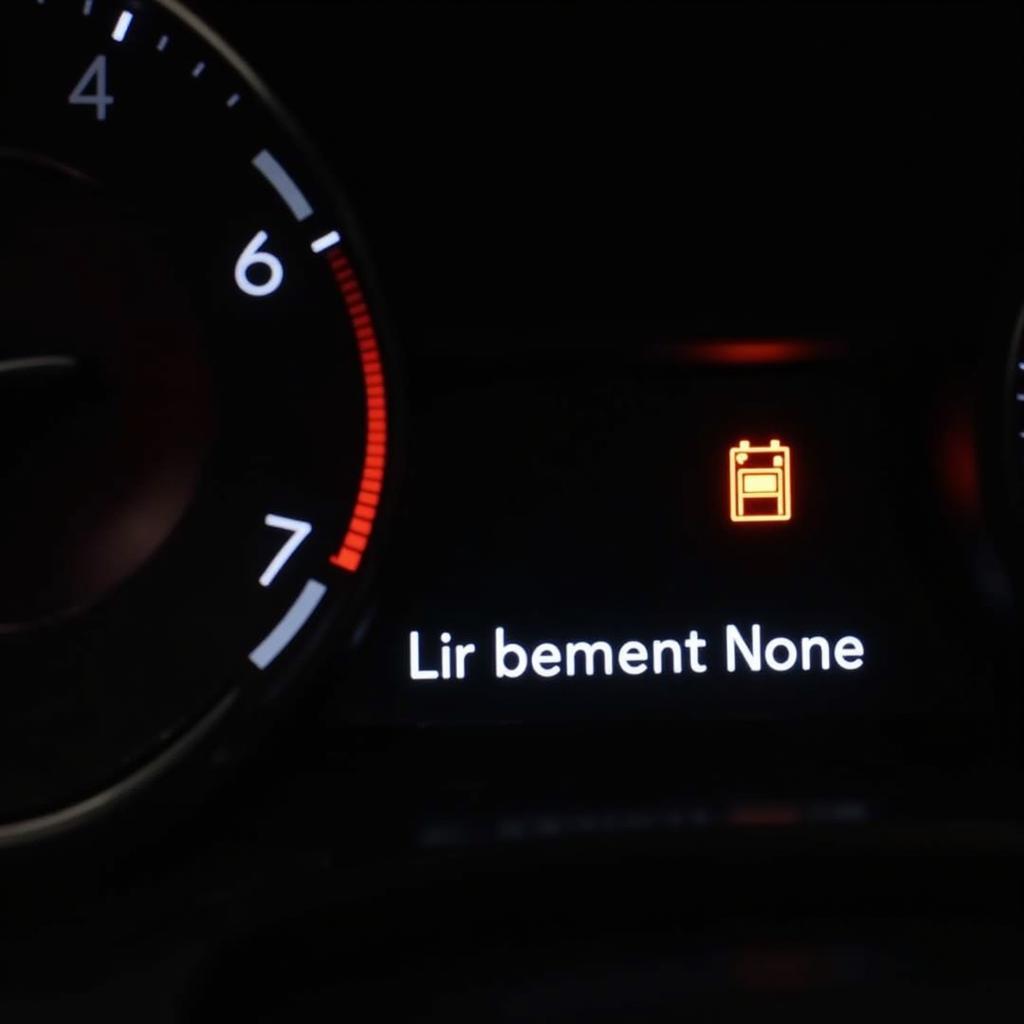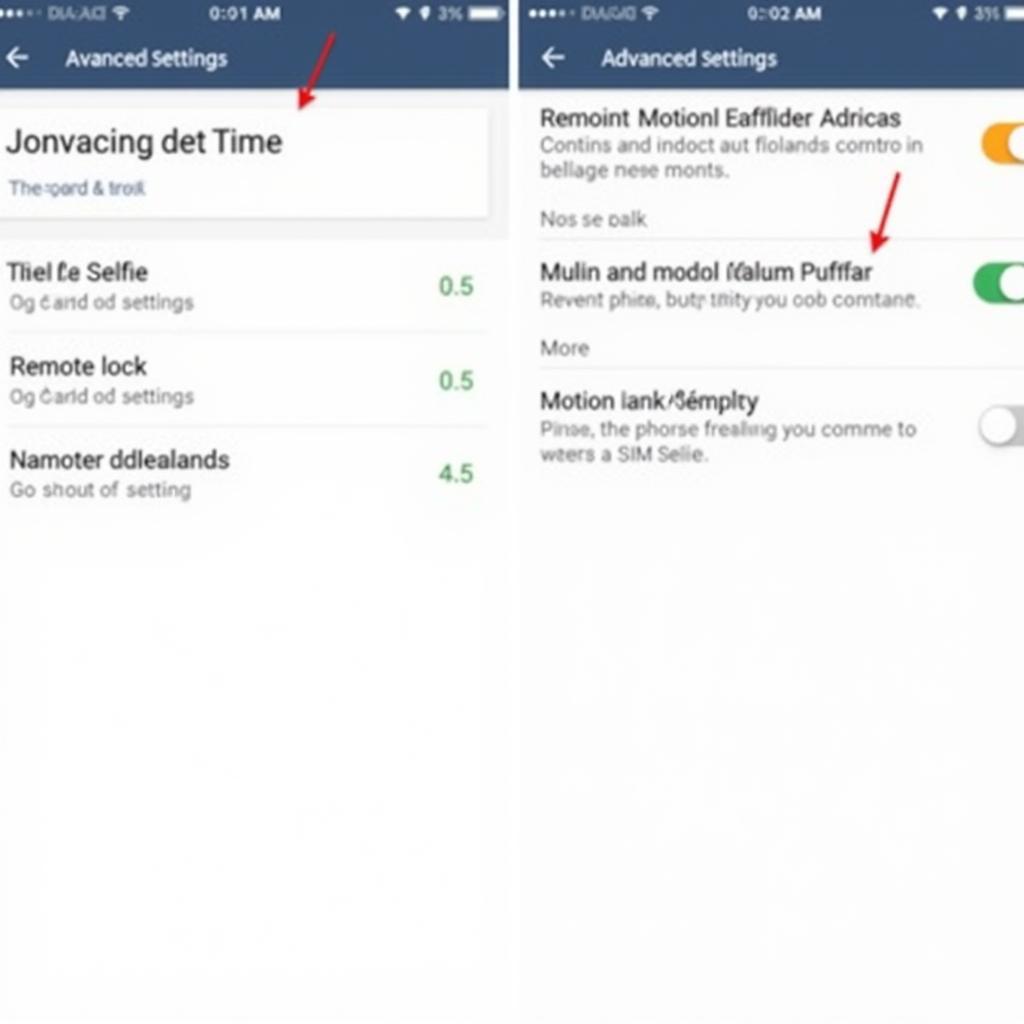The dreaded low battery warning on your Land Rover Evoque dashboard can be a real headache. This article dives deep into the causes of this warning, providing troubleshooting steps and solutions, from simple DIY fixes to more complex issues requiring professional diagnostics.
Understanding the Evoque Low Battery Warning
A low battery warning in your Evoque doesn’t always mean the battery itself is failing. It can signal a variety of problems, from a parasitic drain to a faulty alternator. Ignoring this warning can lead to more serious issues, including being stranded with a dead battery. So, understanding the root cause is crucial.
Common Causes of a Low Battery Warning
- Weak or Failing Battery: Over time, car batteries degrade and lose their ability to hold a charge. Extreme temperatures can accelerate this process.
- Parasitic Drain: This occurs when a component continues to draw power even when the car is off, slowly draining the battery. Common culprits include interior lights, faulty wiring, or aftermarket accessories.
- Faulty Alternator: The alternator recharges the battery while the engine is running. A malfunctioning alternator won’t charge the battery effectively, leading to a low battery warning.
- Driving Habits: Short trips, especially in cold weather, don’t give the alternator enough time to fully recharge the battery.
- Electrical System Issues: Problems with the starter motor, wiring, or other electrical components can put extra strain on the battery.
 Land Rover Evoque dashboard displaying low battery warning
Land Rover Evoque dashboard displaying low battery warning
Troubleshooting Your Evoque’s Low Battery Warning
Before panicking, there are a few things you can check yourself. These simple steps can often pinpoint the problem without needing specialized tools.
- Check the Battery Terminals: Make sure the terminals are clean and tight. Corrosion can impede the flow of electricity.
- Test the Battery Voltage: Using a multimeter, check the battery voltage. A fully charged battery should read around 12.6 volts.
- Inspect the Alternator Belt: Ensure the belt is tight and not frayed or cracked. A loose or damaged belt can prevent the alternator from functioning correctly.
When to Seek Professional Help
If the DIY troubleshooting steps don’t resolve the issue, it’s time to seek professional help. A qualified technician with diagnostic tools can pinpoint the exact cause of the problem.
- Diagnostic Scanning: A diagnostic scan can identify fault codes related to the battery, alternator, and other electrical components.
- Battery Load Test: This test determines the battery’s ability to hold a charge under load.
- Alternator Output Test: This test measures the alternator’s voltage output to ensure it’s charging correctly.
“A proper diagnosis is key,” says James Miller, Senior Automotive Electrical Engineer at Prestige Auto Diagnostics. “Guessing at the problem can lead to unnecessary repairs and wasted time.”
Remote Diagnostics and Software Solutions
Modern vehicles like the Evoque are increasingly reliant on software. Issues with the vehicle’s software can sometimes trigger a low battery warning. Remote diagnostics and software updates can often resolve these problems without a physical visit to a repair shop.
“Remote diagnostics and software updates are transforming the automotive repair industry,” adds Miller. “They offer a convenient and efficient way to address certain electrical issues.”
Preventing Future Low Battery Warnings
- Regular Battery Maintenance: Clean the battery terminals periodically and have the battery tested annually.
- Limit Short Trips: If possible, combine short trips into longer ones to allow the alternator to fully recharge the battery.
- Turn Off Accessories: Ensure all lights and accessories are turned off when the car is parked.
- Park in a Garage: Extreme temperatures can shorten battery life. Parking in a garage can help protect the battery from these extremes.
Conclusion
A low battery warning in your Land Rover Evoque shouldn’t be ignored. By understanding the potential causes and following the troubleshooting steps outlined in this article, you can quickly identify and address the issue. Remember, seeking professional help when necessary is crucial for accurate diagnosis and effective repair. With proper maintenance and timely attention, you can keep your Evoque’s electrical system running smoothly and avoid being stranded with a dead battery.
FAQ
- How long does an Evoque battery typically last? Evoque batteries typically last 3-5 years, depending on driving habits and climate.
- Can I jump-start my Evoque? Yes, you can jump-start your Evoque, but follow the proper procedure outlined in the owner’s manual.
- Is it safe to drive with a low battery warning? While you might be able to drive for a short distance, it’s not recommended. The battery could die completely, leaving you stranded.
- How much does it cost to replace an Evoque battery? The cost of an Evoque battery replacement varies, but it’s typically between $300 and $500.
- Can a faulty alternator cause a low battery warning? Yes, a faulty alternator prevents the battery from recharging properly, triggering the warning.
- What is a parasitic drain? A parasitic drain is a constant draw of power from the battery even when the car is off.
- How can I prevent a low battery warning in the future? Regular battery maintenance, limiting short trips, and turning off accessories can help prevent future low battery warnings.

